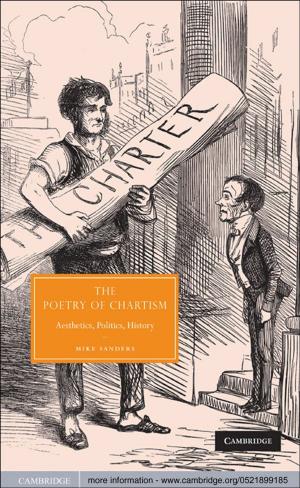Indigenous Elites and Creole Identity in Colonial Mexico, 1500–1800
Nonfiction, History, Americas, Latin America, Health & Well Being, Medical, Specialties, Internal Medicine, General| Author: | Peter B. Villella | ISBN: | 9781316678930 |
| Publisher: | Cambridge University Press | Publication: | January 25, 2016 |
| Imprint: | Cambridge University Press | Language: | English |
| Author: | Peter B. Villella |
| ISBN: | 9781316678930 |
| Publisher: | Cambridge University Press |
| Publication: | January 25, 2016 |
| Imprint: | Cambridge University Press |
| Language: | English |
Modern Mexico derives many of its richest symbols of national heritage and identity from the Aztec legacy, even as it remains a predominantly Spanish-speaking, Christian society. This volume argues that the composite, neo-Aztec flavor of Mexican identity was, in part, a consequence of active efforts by indigenous elites after the Spanish conquest to grandfather ancestral rights into the colonial era. By emphasizing the antiquity of their claims before Spanish officials, native leaders extended the historical awareness of the colonial regime into the pre-Hispanic past, and therefore also the themes, emotional contours, and beginning points of what we today understand as 'Mexican history'. This emphasis on ancient roots, moreover, resonated with the patriotic longings of many creoles, descendants of Spaniards born in Mexico. Alienated by Spanish scorn, creoles associated with indigenous elites and studied their histories, thereby reinventing themselves as Mexico's new 'native' leadership and the heirs to its prestigious antiquity.
Modern Mexico derives many of its richest symbols of national heritage and identity from the Aztec legacy, even as it remains a predominantly Spanish-speaking, Christian society. This volume argues that the composite, neo-Aztec flavor of Mexican identity was, in part, a consequence of active efforts by indigenous elites after the Spanish conquest to grandfather ancestral rights into the colonial era. By emphasizing the antiquity of their claims before Spanish officials, native leaders extended the historical awareness of the colonial regime into the pre-Hispanic past, and therefore also the themes, emotional contours, and beginning points of what we today understand as 'Mexican history'. This emphasis on ancient roots, moreover, resonated with the patriotic longings of many creoles, descendants of Spaniards born in Mexico. Alienated by Spanish scorn, creoles associated with indigenous elites and studied their histories, thereby reinventing themselves as Mexico's new 'native' leadership and the heirs to its prestigious antiquity.















